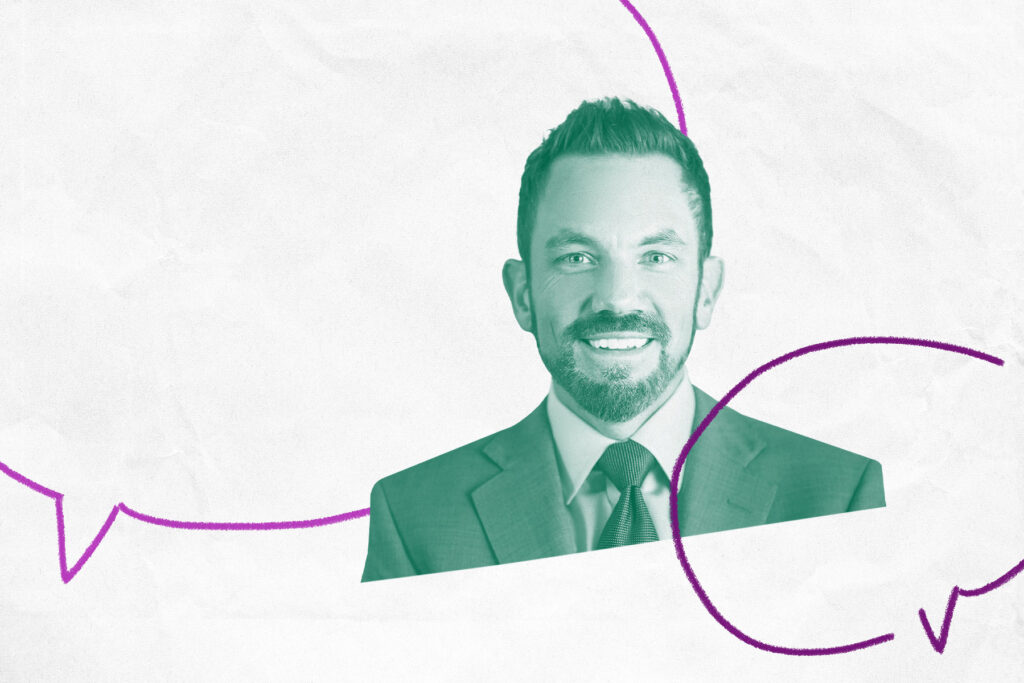Accountable Care Organizations have been around for more than a decade, designed to manage costs for populations whose healthcare was paid for by government payers. While there have been success stories, ACOs haven’t slowed skyrocketing health costs. Are specialists the problem? Prescription drugs? Is the model itself flawed?
D CEO sat down with Adam Chabira, who was named President and CEO of Genovista Health earlier this month, to discuss how ACOs have changed, what is top of mind when it comes to health savings, and the next steps for ACOs and managed care.
Genovista is the creation of a 2019 collaboration between Genesis Physicians Group and Innovista Health. Genesis has been an independent physicians association in North Texas for 30 years and is the largest network of independent physicians in the region. Innovista partners with providers to help them move toward value-based care while continuing to be a viable business. Below, Chabira shares his thoughts on the past, present, and future of ACOs.
D CEO: How did you find your way to your current position?
Chabira: “I got a Master’s in health administration from Texas A&M School of Public Health, and one day I got a phone call from this physician that worked for Baylor healthcare system named Jim Walton. He ended up hiring me, and I was involved in Baylor’s community medicine strategy. We did a lot of work taking care of underserved populations. Jim came over to Genesis in 2013. He called me up in late 2013 and said they were getting ready to launch some ACO work, so I moved over to Genesis in early 2014 as a VP of ACO operations. When Jim recently took a step back to the Independent Practitioner Association, it was a natural fit to move into the CEO role for the ACO.”
D CEO: How have you seen the role of ACOs change over the years?
Chabira: “The goals have not changed significantly. We are working to improve quality for patients, and we’re trying to slow the growth in spending, which continues to be on a steep incline. A lot of work focused on primary care physicians and supportive services for those primary care physicians, like care management and putting in place good analytics to help us identify high-risk patients, doing transitional care as patients come out of the hospital.
“I believe that value-based care has been getting more challenging. When you first got into it, there was a lot of low-hanging fruit, coming in and eliminating waste and redundancy and putting in new processes and ways of thinking to get good performance.”
D CEO: So what is the next step for Accountable Care Organizations?
“A big part of the future is starting to engage specialists and other non-primary care providers in value-based care. That’s going to be critical. Specialists have more influence over some of the big spending in healthcare, whether that’s procedural work, hospitalizations, or elective procedures.
“Specialists can be looked at as more of a cost center instead of focusing on how they’re part of the healthcare team, and I believe that healthcare is a team sport. The Genesis IPA has about 500 primary care doctors and about 1000 specialists, and we’re at a stage where those specialists have been very open to letting us launch our ACO efforts over the first seven or eight years with PCPs, but they’re hungry to see how they can be engaged in value-based care.”
D CEO: How do you get specialists that historically haven’t taken part in value-based care to do so?
Chabira: “Fee for service rates continue to decline for physicians, and value-based care is getting on the bandwagon. I think some specialists have felt like value-based care commoditizes them, but there’s agreement on both sides to provide great care. Most physicians recognize that our current system has been fragmented, so they get jazzed by the idea of coming together to practice medicine as more of a team sport. Forward-thinking specialists feel like working more closely with other parts of the healthcare system, their PCP counterparts and others, and that if we could break up the fragmentation, things would be better for the patient.”
D CEO: What are some examples of how specialists can embrace value-based care?
Chabira: “More specialists are thinking holistically than I had originally assumed. There are some critical conditions where you’ve got specialty physicians quarterbacking. Oncology, for example, is an area where it’s one of the highest spending areas in the commercial population. Once a person is diagnosed with cancer and starts the chemotherapy regimen, that oncologist begins serving as the primary care physician for that patient.
“You see some circumstances like that where patients see their specialty physician considerably more than they’re seeing their primary care physician. You can engage the specialist to say we’ve got a pain point in this particular area; we could work more closely together and develop a program where things are more integrated with one another, even financially integrated, where we could develop incentive structures to reward specialists for their role in improving quality and cost.”
D CEO: How can ACOs look outside traditional healthcare settings to reduce healthcare costs?
Chabira: “There’s a tremendous focus on social determinants of health, health equity, and reducing health disparities. Our ACO has been actively engaged in doing some great work in the Medicaid value-based space, and that’s given us great opportunities to start developing interventions and helping patients with social determinants of health.
“We believe in helping people in their social situations and with some of those barriers that stand in the way of good health. Actual healthcare services make up a small percentage of what influences a person’s health and wellbeing, but it’s a challenge to lean into some things because they feel like they’re outside our sphere of influence. I’ve been proud of the work that we’ve done in that space.”
D CEO: How are federal payers impacting the shift to value-based care?
Chabira: “The jury’s kind of out on whether or not the value-based models have impacted costs. The real question on the table in the shared savings in this market is ‘Are we going to make the jump over the capitation?’ We’re certainly going down that path, but that’s the next big question. A part of me says that capitation, particularly in this environment, has some real advantages for some providers, but there is financial risk.
“Shared savings has caught on because there is a good foundation for it, and organizations like ours help lead the way to help physicians comfortably transition because more health plans are being held responsible for how much of their business is in value-based care and how much of their businesses is in risk capitation.”






